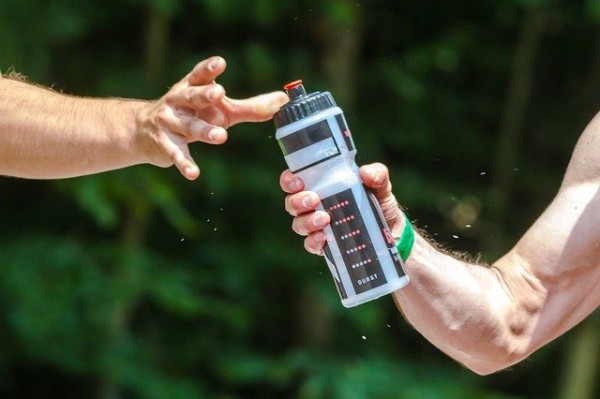Why Do Older Men Need Hydration Even When They Are Not Thirsty? Here’s What New Study Finds
Older men may lack bodily signals that help younger men stale hydrated. This has been confirmed by a recently-conducted study.
Specifically, this research found, "Smart thermostat has nothing on humans' hypothalamus," the gland that helps maintain the body's healthy temperature.
According to the study authors, when an individual gets too hot, the hypothalamus leads his skin to yield sweat that cools him down as it evaporates. As a result, he becomes thirty that he needs to drink to replace the liquids lost through sweating.
Nonetheless, sweating too much, or not drinking adequate water to replenish fluids means one might suffer dehydration.
ALSO READ: 5 Health Conditions You can Avoid by Drinking Water

Older adults, particularly men, may not feel the thirst as young people do and should be careful to stay hydrated while working or exercising during the hot weather.
Insufficient Water in the Body
Without adequate water in the body, one tends to lose the ability to cool himself with sweat, and his body can overheat. More so, such inadequacy increases one's chance to experience heatstroke, as well as other heat-linked impairments to the body.
As you age, your temperature regulation system's efficiency drops. Even though most studies of dehydration's impacts focus on young adults, this new research published in The Journal of Physiology investigates the role of water in older adults' health.
Older adults, particularly men, may not feel the thirst as young people do and should be careful to stay hydrated while working or exercising during the hot weather.
Link Between Dehydration and Aging
Scientists from the Human and Environmental Physiology Research Unit at the Canada-based-University of Ottawa discovered the inconsistent risk linked "with dehydration later in life."
During the exercise of physical activity, on the other hand, dehydration in elderly individuals does not result as readily to a rise in body temperature through a decline in heat loss as its impact on younger individuals.
Furthermore, even though this may appear to be favorable, the lack of thirst and sweat may mean that an individual is losing essential signs suggesting that it is time for rehydration.
If older adults don't drink adequate water, dehydration may persist and discreetly increase to dangerous levels.
DON'T MISS THIS: US Buys Majority of Redemsivir Global Stock in Hopes of Ensuring COVID-19 Recoveries
The Balance Between Water and Salt
Researchers have proposed that older adults don't feel thirsty that much because of a reduced ability to identify and respond to the salt level in their blood.
In addition, researchers found, too, that when balance between water and salt in blood "tips toward salinity, the younger adults' body responds with thirsty feelings.
Scientists wondered if a similar reduced ability to detect salinity of blood or "osmolality," that lessens the "sensations of thirst" may also the contributor to a less extreme reaction to dehydration among older adults.
In this study, 10 younger men aged 18 to 30 years, and older men aged 54 to 67 years, took part in exercise heat stress tests.
During the investigation, the study authors asked them to abstain from drinking alcohol and get involved in vigorous exercise 24 hours before every session. Specifically, participants were asked to drink 500 milliliters of water in the evening before the tests.
After they were screened, the male respondents participated in two exercise sessions held one week apart.
In the beginning, as indicated in the study, of each session, they were given n "intravenous saline solution for increased blood osmolality" before they entered a "heated, whole-body direct-air calorimeter" for one hour of stationary cycling.
Data Analysis
Data analysis showed a fundamental difference in the body temperature's regulation between the younger and older men.
Study authors found that for older men, a rise in blood salinity did not activate the body's responses to dehydration as it did in younger male individuals.
IN CASE YOU MISSED THIS: Is Excessive Exercise Linked to Eating Disorders? Here's What Studies Say
Check out more news and information on Aging on MD News Daily.
Oct 13, 2020 08:32 AM EDT





